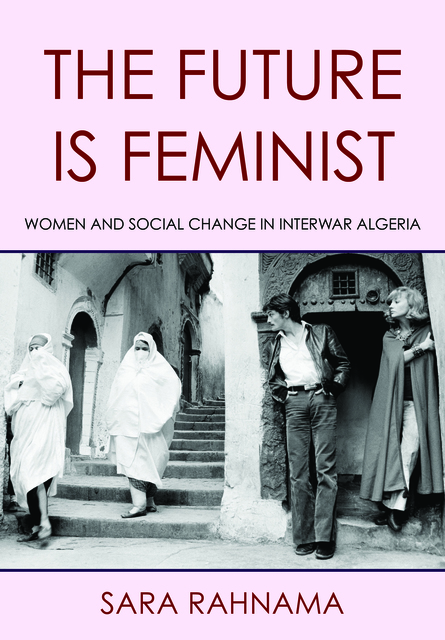The Future is Feminist
Women and Social Change in Interwar Algeria
The Future Is Feminist by Sara Rahnama offers a closer look at a pivotal moment in Algerian history when Algerians looked to feminism as a path out of the stifling realities of French colonial rule. Algerian people focused outward to developments in the Middle East, looking critically at their own society and with new eyes to Islamic tradition. In doing so, they reordered the world on their own terms—pushing back against French colonial claims about Islam's inherent misogyny.
Rahnama describes how Algerians took inspiration from Middle Eastern developments in women's rights. Empowered by the Muslim reform movement sweeping the region, they read Islamic knowledge with new eyes, even calling Muhammad "the first Arab feminist." They compared the blossoming women's rights movements across the Middle East and this history of Islam's feminist potential to the stifled position of Algerian women, who suffered from limited access to education and respectable work. Local dynamics also shaped these discussions, including the recent entry of thousands of Algerian women into the workforce as domestic workers in European settler homes.
While Algerian people disagreed about whether Algeria's future should be colonial or independent, they agreed that women's advancement would offer a path forward for Muslim society toward a more prosperous future. Through its use of Arabic-language sources alongside French ones, The Future Is Feminist moves beyond Algeria's colonial relationship to France to illuminate its relationship to the Middle East.
Sara Rahnama is Assistant Professor of History at Morgan State University. Her writing has appeared in both academic and popular spaces, including Gender & History and the Washington Post. She was formerly a fellow at the John W. Kluge Center at the Library of Congress. She lives in Washington, DC, with her husband and two daughters.
Table of Contents
The Future is Feminist
Uncategorized
The Future Is Feminist
Sara Rahnama- This text has 0 annotations
- This text has 6 highlights
Metadata
- publisherCornell University Press
- publisher placeIthaca, NY

